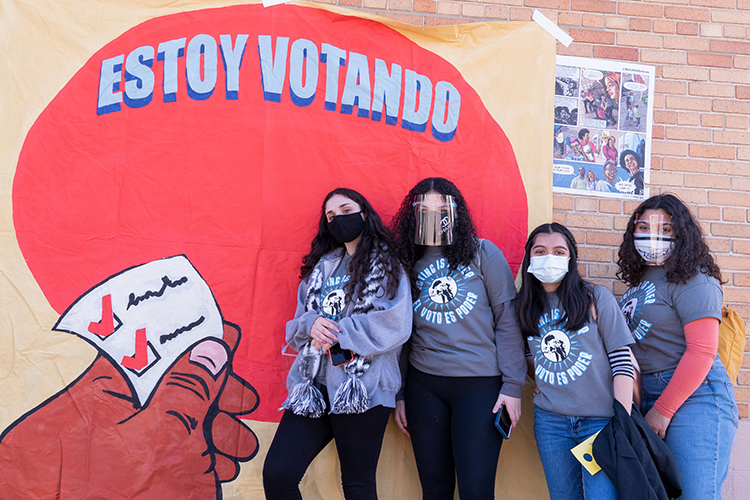Subscribe to Berkeley Talks, a Berkeley News podcast that features lectures and conversations at UC Berkeley.

"We are so diverse because we're generationally diverse - linguistically, racially, ethnically," said Maria Escheveste, a senior scholar at UC Berkeley's Center for Latin American Studies, of Latinx voters. "Demography is not destiny." (Milwaukee Teachers' Education Association photo via Flickr)
In this episode of Berkeley Talks, experts discuss the forces that shaped the outcome of the U.S. elections in November and the implications of the elections for the U.S. and the countries of Latin America.
"Hispanics are the new swing voters," said Maria Escheveste, a senior scholar at the Center for Latin American Studies (CLAS) and president and CEO of the Opportunity Institute, who joined Paul Pierson, a professor of political science at Berkeley, and Colombian investigative journalist Daniel Coronell, at the Nov. 20, 2020 campus webinar.

The Center for Latin American Studies hosted the talk "U.S. Elections 2020: Implications for the Americas" on Nov. 20, 2020.
It's imperative that Democrats realize that the Latinx community isn't a monolith, she said, and that immigration isn't the only issue every Latinx person cares about. "We are so diverse because we're generationally diverse - linguistically, racially, ethnically," said Escheveste. "Demography is not destiny."
If Democrats don't commit to learning about the complexity of the Latinx voter, she said, it'll cause them to lose elections.
Also, said Escheveste, a former White House deputy chief of staff during the second Clinton administration, it's important to remember that most people - in the U.S. and in Latin America - generally want the same things.
"Most people, they want good jobs, they want safe neighborhoods, they want good schools, they want a decent retirement, they want health care," she said. With that in mind, she said she hopes the incoming Biden administration will focus on bringing people together. "I really believe that there should be an effort to try to find that common ground."
This discussion was hosted by CLAS and moderated by Harley Shaiken, chair of CLAS and a professor in the School of Education and the Department of Geography.
Listen to the full discussion in Berkeley Talks episode #102: "U.S. elections 2020 and implications for the Americas."
Watch the webinar below.






